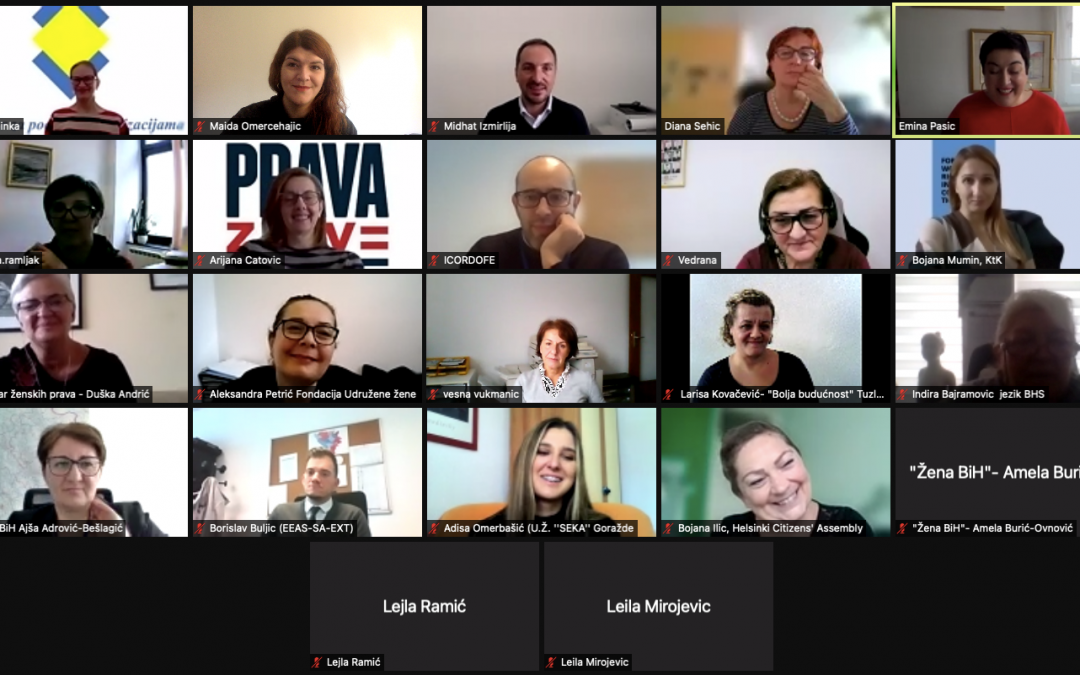An online workshop under the title “Strengthening civil society organizations for inclusion in the EU integration process” was held on October 13, 2021. The workshop was primarily intended for members of the Women’s Advocacy Group (WAG), which has been actively advocating for greater inclusion of women’s voices, perspectives and expertise in the EU Accession process.
The participants of the workshop had the opportunity to discuss the importance of inclusion of CSOs in all relevant reform processes from different perspectives. Professor Midhat Izmirlija, PhD from the University of Sarajevo Faculty of Law spoke about the importance of being included in the process of EU integration and what are the ways of involvement, and Darija Ramljak, Assistant Director at the Directorate for European Integration of BiH presented the role and obligation of DEI as the leading institution for the integration process in BiH, and the possibilities and past experiences of cooperation with CSOs. Finally, Fermin Cordoba, Political Advisor at EUSR and Ajša Adrović-Bešlagić, Program Manager at the Delegation of the EU in BiH, shared important information on the possibilities of including civil society in different consultation processes and the possibilities of strengthening current cooperation.
“Gender equality must be included in all reforms related to the EU Accession process. Our task is, among other things, to indicate the deficiencies in laws and practice which need to be improved in order to better the state of women’s human rights in BiH”, stated Diana Šehić, Director of PRAVA ZA SVE.
It was emphasized that CSOs, particularly those dealing with women’s rights, are involved in the process of EU integration through different approaches: advocating for systemic solutions, compensating for the lacking systemic services, and monitoring the implementation of their own recommendations and the realization of the established systemic solutions.
“The space for the work of CSOs is shrinking, and it is in our interest to start promoting European standards through the process of European integration, primarily because of ourselves. The role of civil society is substantial here: the more the introduction of European standards is advocated for, the more the organizations themselves, as well as the society in general, are strengthened”, stated Professor Midhat Izmirlija, PhD, from the University of Sarajevo Faculty of Law.
It was concluded that CSOs cannot be involved in decision-making processes only when necessary, since their activities are relevant for all aspects of society, and they represent those who cannot be involved on their own, and especially those who need additional support.

